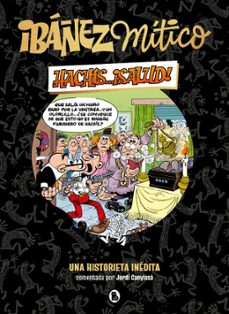📗 Libro en inglés THE HUMAN ZOO: A ZOOLOGIST S STUDY OF THE URBAN ANIMAL
KODANSHA AMERICA - 9781568361048
Sinopsis de THE HUMAN ZOO: A ZOOLOGIST S STUDY OF THE URBAN ANIMAL
How does city life change the way we act? What accounts for the increasing prevalence of violence and anxiety in our world? In this new edition of his controversial 1969 bestseller, The Human Zoo, renowned zoologist Desmond Morris argues that many of the social instabilities we face are largely a product of the artificial, impersonal confines of our urban surroundings. Indeed, our behavior often startlingly resembles that of captive animals, and our developed and urbane environment seems not so much a concrete jungle as it does a human zoo.
Animals do not normally exhibit stress, random violence, and erratic behavioruntil they are confined. Similarly, the human propensity toward antisocial and sociopathic behavior is intensified in todays cities. Morris argues that we are biologically still tribal and ill-equipped to thrive in the impersonal urban sprawl. As important and meaningful today as it was a quarter-century ago, The Human Zoo sounds an urgent warning and provides startling insight into our increasingly complex lives.
Ficha técnica
Editorial: Kodansha America
ISBN: 9781568361048
Idioma: Inglés
Número de páginas: 272
Tiempo de lectura:
5h 35m
Encuadernación: Tapa blanda
Fecha de lanzamiento: 06/07/2016
Año de edición: 1994
Especificaciones del producto
Escrito por Desmond Morris

Desmond Morris (Wiltshire, 1928), zoólogo inglés, estudió bajo una perspectiva zoológica las peculiaridades biológicas y psicológicas de la especie humana. Se doctoró en Oxford con un estudio sobre el comportamiento animal y, durante los años 1959-1967, fue director de la sección de mamíferos del zoo de Londres. Morris obtuvo un gran éxito con un programa semanal en la televisión inglesa sobre la vida de los animales. Autor de más de cincuenta estudios sobre el ser humano y sobre los animales, su auténtico best-seller fue El mono desnudo (1967), que vendió millones de ejemplares en todo el mundo. Otras obras del autor son The Biology of Art (1962), El zoo humano (1969) o Comportamiento íntimo (1971).
Descubre más sobre Desmond Morris Recibe novedades de Desmond Morris directamente en tu email
Opiniones sobre THE HUMAN ZOO: A ZOOLOGIST S STUDY OF THE URBAN ANIMAL
¡Sólo por opinar entras en el sorteo mensual de tres tarjetas regalo valoradas en 20€*!































